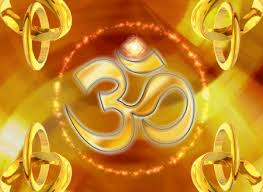Hari OM
APPLICATION! Yes that is what Workings-days will be about.
A great deal of the study of any philosophy is static. Words on a page or heard from a speaker. For sure, majority of you have attended some sort of workshop or symposium. How much of what you learned did you truly apply in your life/work situation? How much simply remained theory due to lack of application? The other tendency is to 'cherry pick'; "I like that bit but will not bother with the pip"... forgetting that it is the 'pip' from which arise many more cherries!
Any discipline is only as effective as the application of the principles it propounds.
Advaitic philosophy is a science, providing 'formulae' with which to experiment. It is applicable in daily life. Much of this requires self-improvement, which is attained through application of the operational parameters given in saadhana chatushtaya. We will be exploring that aspect on Choose-days, remember.
The other, significant, part is the reading of texts and the listening of the words of teachers, then the deep and enquiring cogitation on same, leading to focused understanding and total absorption of what has been learned. In Sanskrit, the terms used for this are; श्रवणं /shravanam (listening), मननम् /mananam (thinking), ध्यानं / dhyaanam ('meditation'). [Note that only shravanam is given (not 'reading') because the tradition was always vocal teaching and verbatim memorising by the student; it is amazing how this opens the mind. For the Western-trained mind this is a huge challenge. The gurukula learning methodology is like no other, but its effectiveness is undeniable.]
Exercising the intellect can be as stretching, as bending and as painful as any physical exercise.
One of the accusations thrown at Vedanta is that it is 'dry' intellectualism. Well, true, if it is left on the books. It was never intended to be so, however. For all the words bandied about in its name, Vedanta is a practice, something to be lived, to be made real. Best of all, to discover that it is the unifying principal behind ALL philosophies.
 This first week is about introduction and taking the very first, baby steps. The first 'assignment' is THE NOTE BOOK. You will have observed a few Sanskrit terms being seeded into each article. These are words which encompass much and are expressive of concepts beyond simple verbal meanings. It is necessary to familiarise yourself with these. Why? Well, using the dance analogy from yesterday, if you were all the time told 'move with smooth, light and airy effect across the target area of the step', it would become a bit arduous, would it not? The term 'glide' would convey this to you more effectively.
This first week is about introduction and taking the very first, baby steps. The first 'assignment' is THE NOTE BOOK. You will have observed a few Sanskrit terms being seeded into each article. These are words which encompass much and are expressive of concepts beyond simple verbal meanings. It is necessary to familiarise yourself with these. Why? Well, using the dance analogy from yesterday, if you were all the time told 'move with smooth, light and airy effect across the target area of the step', it would become a bit arduous, would it not? The term 'glide' would convey this to you more effectively.
Now, please re-read the blog entries so far and write down each of the Sanskrit terms you find there along with the interpretation/explanation given (you do not have to use the devanagari - just the Anglicisation). Use one page per item. As we go along, you can add to your understanding of not just the simple meaning, but the concepts as they are adapted within each context.
It is not uncommon to resist such basic measures. Consider this; when the new builder sought to create his first building, he thought to begin at the tenth floor. He had all the knowledge, no practice. It seemed there was not reason to start high. After all, anyone can create a building from the ground up, right?

APPLICATION! Yes that is what Workings-days will be about.
A great deal of the study of any philosophy is static. Words on a page or heard from a speaker. For sure, majority of you have attended some sort of workshop or symposium. How much of what you learned did you truly apply in your life/work situation? How much simply remained theory due to lack of application? The other tendency is to 'cherry pick'; "I like that bit but will not bother with the pip"... forgetting that it is the 'pip' from which arise many more cherries!
Any discipline is only as effective as the application of the principles it propounds.
Advaitic philosophy is a science, providing 'formulae' with which to experiment. It is applicable in daily life. Much of this requires self-improvement, which is attained through application of the operational parameters given in saadhana chatushtaya. We will be exploring that aspect on Choose-days, remember.
The other, significant, part is the reading of texts and the listening of the words of teachers, then the deep and enquiring cogitation on same, leading to focused understanding and total absorption of what has been learned. In Sanskrit, the terms used for this are; श्रवणं /shravanam (listening), मननम् /mananam (thinking), ध्यानं / dhyaanam ('meditation'). [Note that only shravanam is given (not 'reading') because the tradition was always vocal teaching and verbatim memorising by the student; it is amazing how this opens the mind. For the Western-trained mind this is a huge challenge. The gurukula learning methodology is like no other, but its effectiveness is undeniable.]
Exercising the intellect can be as stretching, as bending and as painful as any physical exercise.
One of the accusations thrown at Vedanta is that it is 'dry' intellectualism. Well, true, if it is left on the books. It was never intended to be so, however. For all the words bandied about in its name, Vedanta is a practice, something to be lived, to be made real. Best of all, to discover that it is the unifying principal behind ALL philosophies.
Now, please re-read the blog entries so far and write down each of the Sanskrit terms you find there along with the interpretation/explanation given (you do not have to use the devanagari - just the Anglicisation). Use one page per item. As we go along, you can add to your understanding of not just the simple meaning, but the concepts as they are adapted within each context.
It is not uncommon to resist such basic measures. Consider this; when the new builder sought to create his first building, he thought to begin at the tenth floor. He had all the knowledge, no practice. It seemed there was not reason to start high. After all, anyone can create a building from the ground up, right?
